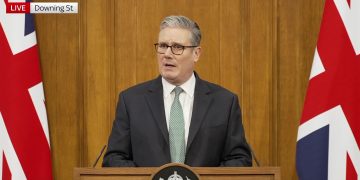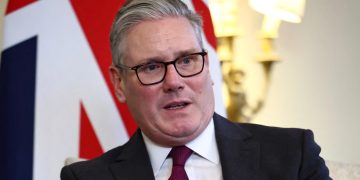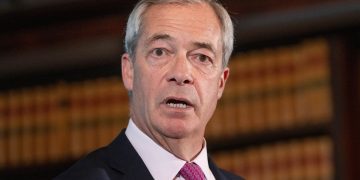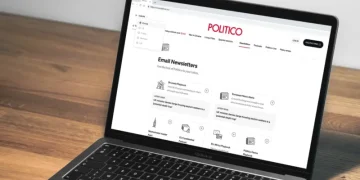Motorists are preparing for Rachel Reeves’ Budget with nervous anticipation, as the Chancellor looks to find ways to fill a £30bn black hole in the public finances.
Reeves is expected to introduce a new pay-per-mile tax for electric vehicles next week – a move dubbed a “poll tax” for EV owners.
There are other ways the Budget could hit drivers’ pockets, including hikes to fuel duty, cutting company car tax benefits, and taxing the Motability scheme for disabled drivers.
The i Paper took a closer look at which moves Reeves might make, as experts warn the Chancellor risks upsetting both motorists and environmentalists.
EV drivers could be charged 3p per mile
Reeves is thought to be considering a new pay-per-mile levy on electric vehicles, charging EV drivers 3p per mile.
The new scheme would be implemented in 2028 and would cost EV drivers an average of £250 per year, according to reports.
Fuel duty currently only applies to petrol and diesel, so the levy would be about finding an equivalent way to raise some money from EVs. “We want a fairer system for all drivers,” a Government spokesperson has said.

Setting up the scheme will be tricky. Owners may have to estimate their mileage for the year ahead. If they drive fewer miles, they could be given credit for the following year, or face an extra charge if they drive more than their estimate.
The Society of Motor Manufacturers (SMMT) called the “complex” idea “the wrong measure, at the wrong time”. The group representing car manufacturers said it would hit vehicles that the industry is already struggling to sell.
The AA has called it a “poll tax” on for electric car owners. The motoring group warns that it will “slow down the transition to EVs” by discouraging drivers from thinking about making the switch away from fossil fuel-guzzling cars.
Vicky Edmonds, chief executive of EVA England, a campaign group for EV drivers, warned that discouraging drivers from making the switch could “seriously risk the success” of the Government’s net zero targets.
Fuel duty could rise
A 5p-a-litre fuel duty cut was introduced as a temporary measure during the Covid crisis in 2022, but is due to end in March 2026.
Reeves is facing calls from motoring groups – staunchly opposed to any tax rise – to extend the cut. On the other hand, public transport campaigners are urging the Chancellor to bring the 5p cut to an end.
The Campaign for Better Transport says allowing it to expire would bring in £2.6bn a year for public transport improvements. Reinstating an inflation-linked fuel duty rise would raise a further £1.6bn a year, says the group.
However, the Road Haulage Association claims ending the 5p fuel duty cut would cost motorists more than £100 more a year.

“I sense the Government is keen to tinker around the edges with raising revenue from things like fuel duty, rather than putting up income tax,” said Tom Goddard, a senior associate at the tax and accounting firm Blick Rothenberg.
“So I think it’s pretty likely that raising fuel duty is something the Government will look at seriously, perhaps linking it to inflation again,” the tax expert added. “It will upset motorists – but it would go along with the [Government’s] green, net zero narrative.”
Neil Maslen, a senior manager in accountancy firm HW Fisher’s private client tax team, said the Government could raise fuel duty to counter fears from environmentalists that a 3p per mile levy on EVs will incentivise people to stick with petrol cars.
“As a counter-move, they could increase fuel duty for petrol and diesel as well as introduce a pay-per-mile levy on EVs and say, ‘The net position is the same – we’re still going green,’” said the tax expert.
Motability scheme could be taxed
Disabled drivers are bracing themselves for a major shake-up of Motability, which sees personal independence payment (PIP) benefits money used to lease a range of cars.
Reeves is said to be looking at imposing VAT on the scheme for the first time in a bid to raise £1bn a year.

Motability Operations has warned that the up-front payments for users would have to increase between £3,000 and £6,500 per car, on average.
Disabled people have told The i Paper that they cannot afford such a big hike in advance payments and may quit the scheme. They say they feel “unfairly targeted” by Reeves.
The Government is also thought to be keen on changes to stop people accessing “luxury” models such as BMW, Audi, and Mercedes-Benz via the scheme.
Stephen Latham, the commercial manager of the National Franchise Dealers’ Association, said the Government could also look at imposing VAT only on premium cars – leaving mainstream models alone. “But that could be seen as unfair and divisive,” he said.
Salary sacrifice scheme rules could change
The salary sacrifice scheme for company cars is a tax benefit that has been used to incentivise electric vehicle take-up.
It allows employees to pay for the cost of leasing an EV through their pre-tax salary, often saving several hundreds of pounds a month in income tax and national insurance.
Tax experts said it could be something that Reeves may change at the Budget, depending on whether she is willing to upset petrolheads or eco-conscious drivers.
At the moment, a small amount of tax is paid on the “benefit-in-kind” received through the salary sacrifice scheme.
The benefit-in-kind rate is only 2 per cent on EVs. But petrol and diesel cars can see rates of up to 37 per cent, depending on how much CO2 is emitted.
Blick Rothenberg tax expert Goddard said the Treasury could further “increase the rates for petrol and diesel cars” to incentivise the switch to EVs.
Or the Treasury could look to make the system fairer on petrol and diesel drivers by increasing the rates on EVs, Goddard added.
Your next read
Maslen, the tax expert at HW Fisher, said Reeves could take the “bold step” of making sure that EVs were no longer “tax advantaged” in the salary sacrifice scheme.
But he pointed out that benefit-in-kind rates for EVs are already set to increase in the years ahead and will reach 9 per cent by 2030. “They increased the rates at the last Budget, so I don’t think they’ll change,” said Maslen.
A Treasury spokesperson said the department would not comment on tax speculation ahead of the Budget.






























